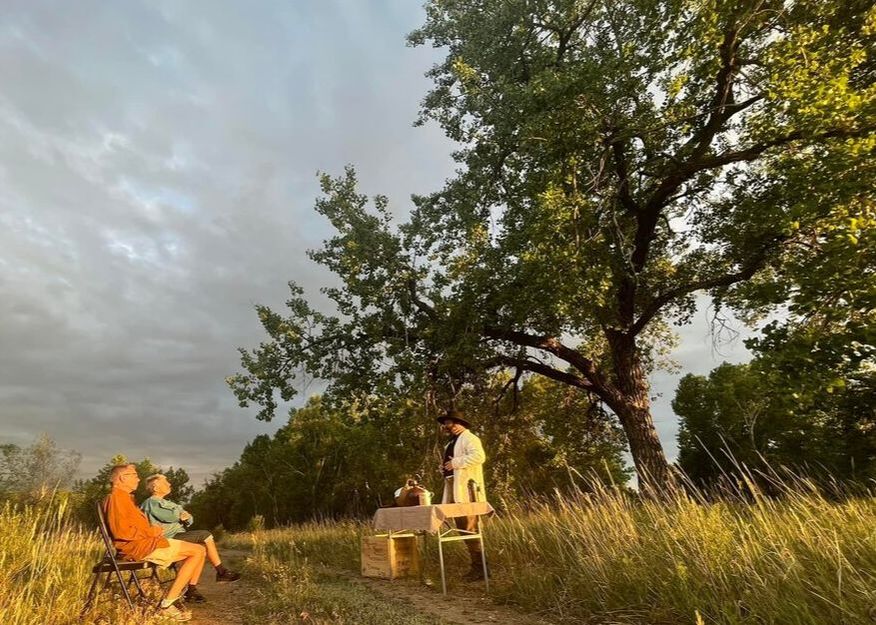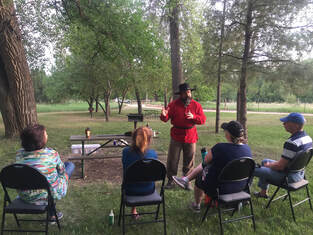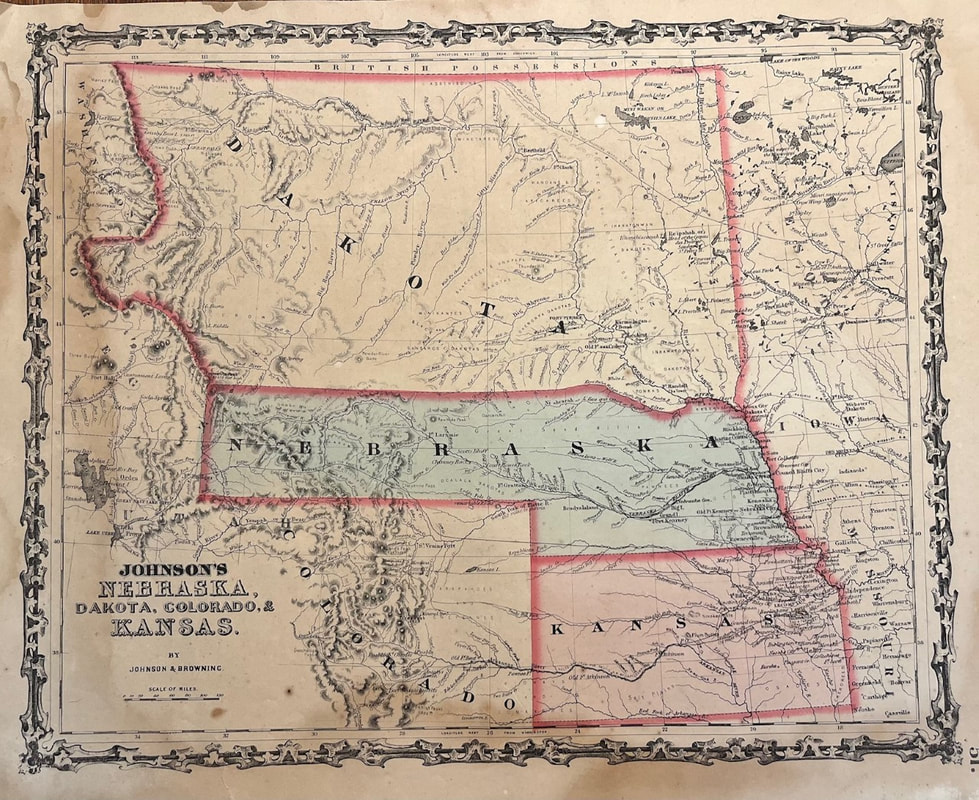
About Our Talks (June - August) Located on historic ground along the Cache la Poudre River, our venue provides a scenic open grassy area perfect for small audiences. Folding chairs are furnished for your comfort. Our chronological and geographic scope at Traces of the Past allows for the exploration of a vast storehouse of historic subject matter. The truth is that it is nigh on impossible to mention, let alone discuss, every topic of import or interest during our tours given their limited duration. Therefore, in order to introduce and delve deeper into those “missed” historic subjects, we are offering one-hour evening talks as an adjunct to our tours. |

What to Bring
Cancellation Policy: all sales are final and we do not offer refunds. |

The Significance and Value of Historic Maps, an Interactive Study
Sagacious is the individual who reads history with a map at their side. Historically, maps have been (and still are) indispensable aids for geographic orientation, which is critical to directional and spatial comprehension. Only after this basic understanding can there be any form of analysis. Join us for an interactive, fun presentation as we examine both historic and modern maps of the NE Colorado, SE Wyoming, and W Nebraska region. You’ll be pleasantly surprised at how much can be learned simply by studying these documents! When: Saturday, August 6, 13, and 20 Time: 7:00 p.m. – 8:00 p.m. Where: Running Deer Natural Area – 3745 E. Prospect Road, Fort Collins, CO 80525 Weather conditions in Colorado can vary so please dress accordingly and wear comfortable shoes for standing and walking (smooth and uneven surfaces). In addition, consider bringing water, sunscreen, and insect repellent. |

